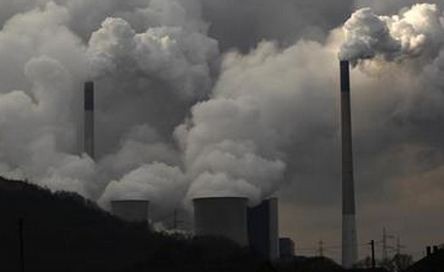The United States has decided to study the merits of a controversial method called geoengineering or climate engineering as an acceptable solution to untrammeled global warming.
The prestigious National Academy of Sciences (NAS) has released two reports suggesting geoengineering merits further investigation as weapon in the overall fight against climate change. It warned, however, that geoengineering should not be treated as the main solution to climate change but as one among more established solutions such as emissions control.
Some climate scientists have proposed geoengineering as a potential third option for combating global warming along with mitigation and adaptation.
Geoengineering is the deliberate and large-scale intervention in the Earth's climatic system meant to reduce global warming. There are two ways to bring this about: carbon dioxide removal and solar radiation management.
NAS released the reports as part of its review of the current science on methods to remove carbon from the atmosphere. It also wants to look at measures that could be used to enhance the reflection of sunlight off the earth. This process is known as albedo modification.
Neither of the two solutions is ready for prime time, the Christian Science Monitor reported. Removing carbon dioxide from the atmosphere, however, is far enough advanced to benefit from dedicated research-and-development efforts.
On the other hand, altering the amount of sunlight striking the Earth's surface has too many unknown, hard-to-quantify risks.
Both reports suggest more research and some testing of geoengineering are needed to understand its potential benefits and drawbacks. NAS, however, seems to look on geoengineering as a weapon of last resort.
NAS noted that "if society ultimately decides to intervene in Earth's climate, the Committee most strongly recommends any such actions be informed by a far more substantive body of scientific research--encompassing climate science and economic, political, ethical, and other dimensions--than is present now."
The NAS recommendations are a sea change, and seem to reflect a growing concern the world is doing too little, too late to effectively combat climate change. Experts in the environmental community opposed to geoengineering argue it might weaken established efforts to cut pollution.
There are no known large-scale geoengineering projects that have been implemented anywhere in the world. Almost all geoengineering research has consisted of computer modeling or laboratory tests. Attempts to move to real-world experimentation have proven controversial.
"There's absolutely no substitute for slashing fossil fuel emissions in order to prevent catastrophic disruption of the Earth's climate. But it's prudent to do research into geoengineering because, for instance, improved carbon dioxide-removal techniques could help reduce such dangerous pollution," the Natural Resources Defense Council president Rhea Suh said in a statement published on Huffington Post.



























